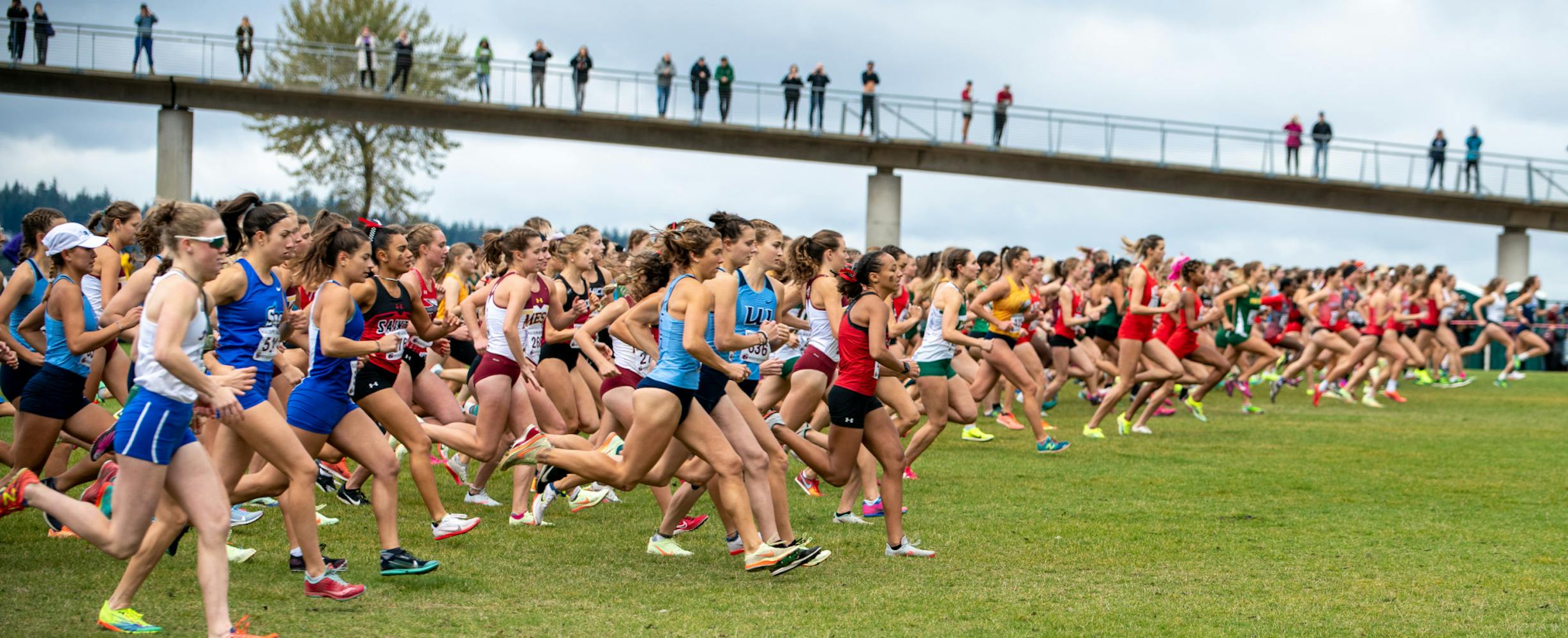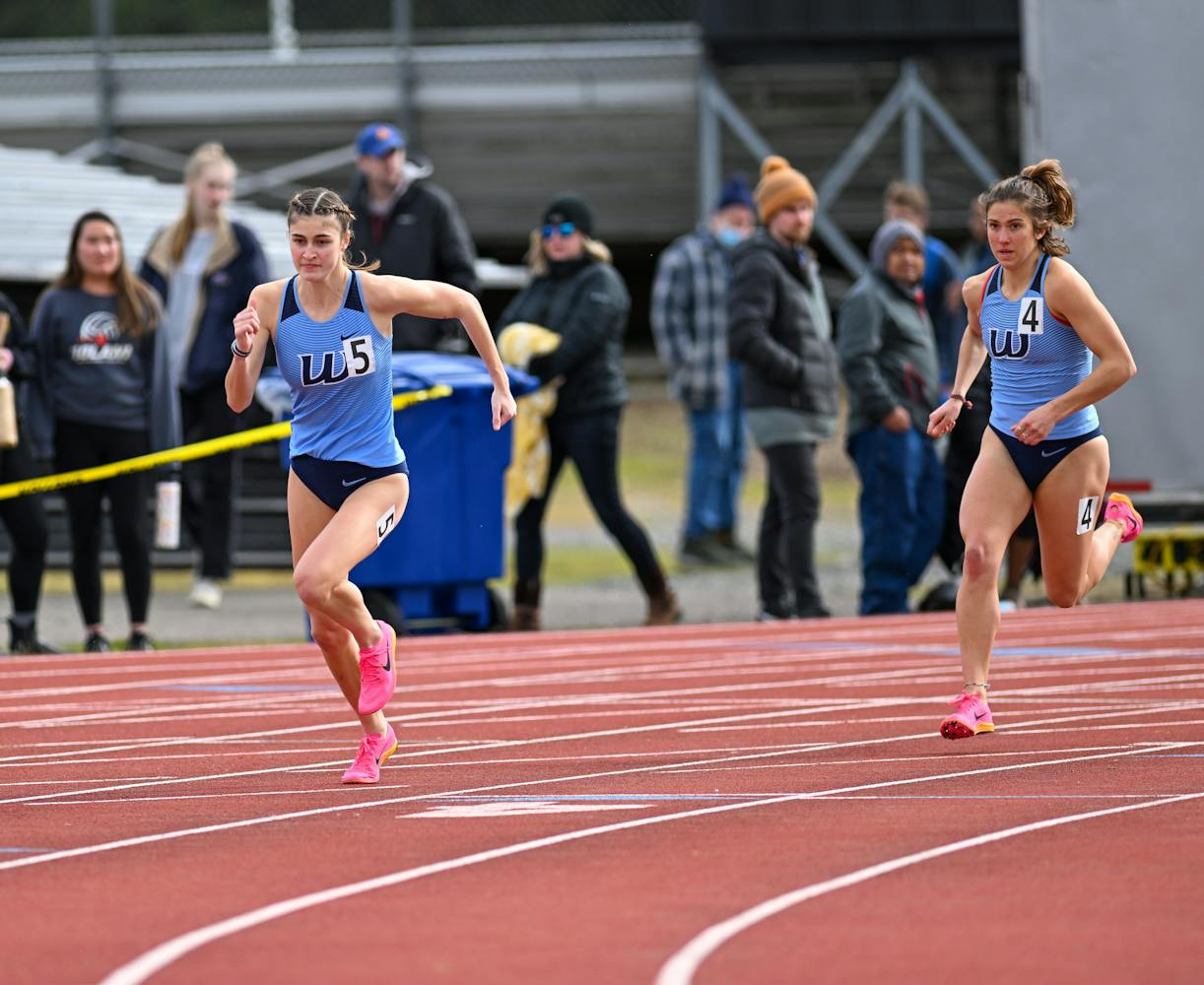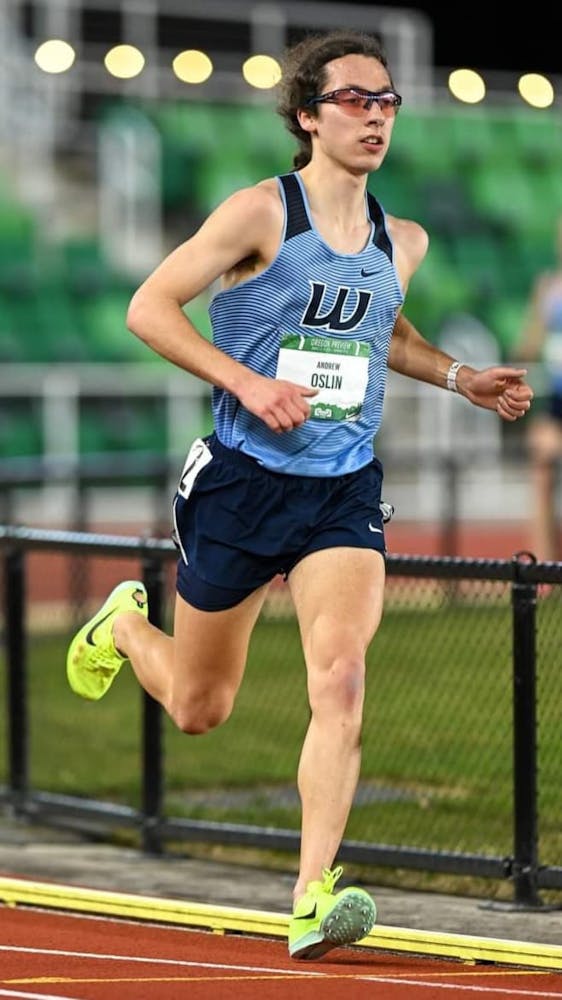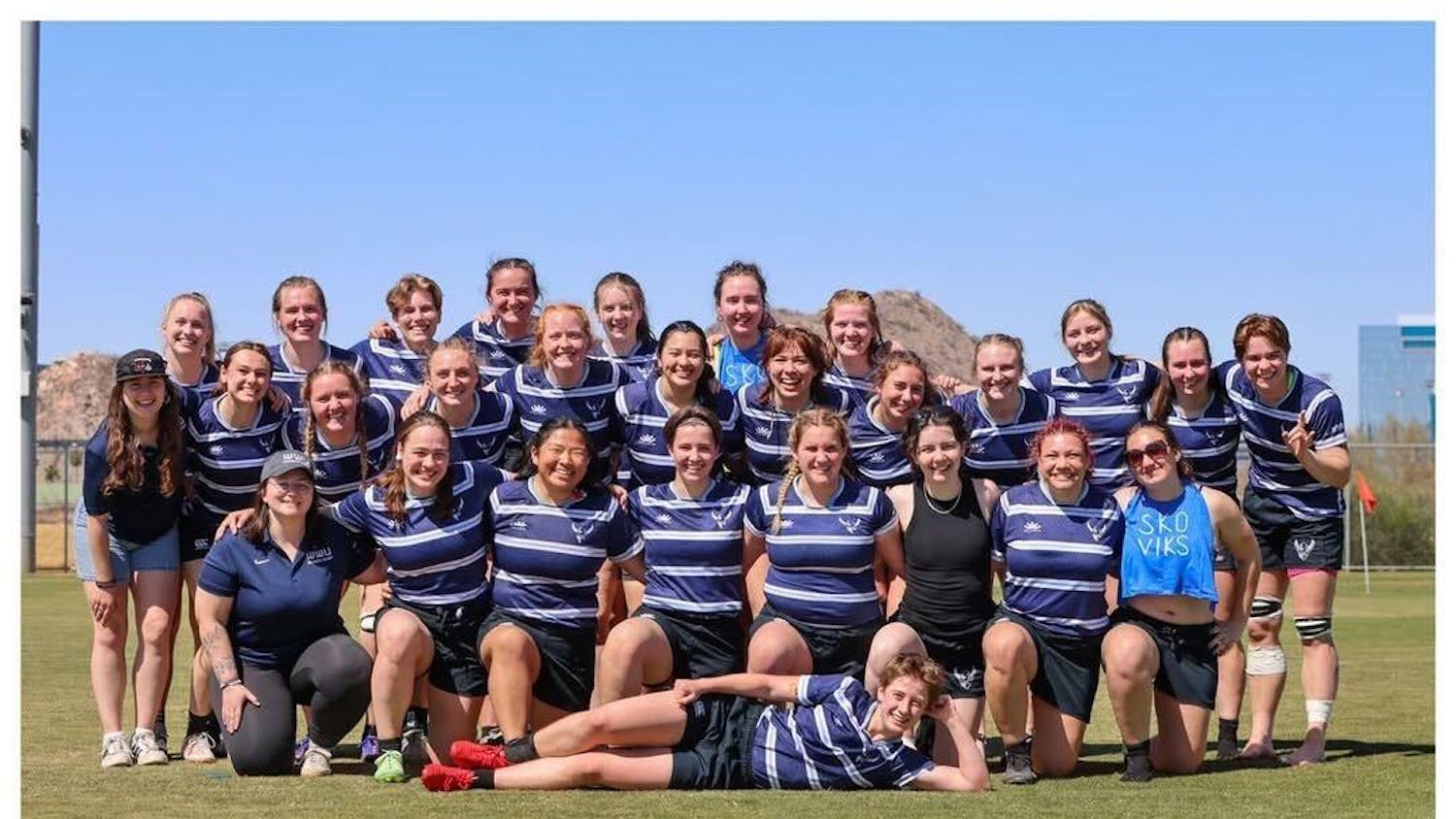Western Washington University’s cross country team, which is also made up of members from their indoor and outdoor distance track team, trains on Bellingham’s tracks and trails every day of the academic year.
“We always have a foot on the gas,” said sophomore and women’s co-captain Mia Crocker. “But we wouldn’t have it any other way.”
Once the outdoor track season ends, the team gets a week or two to breathe before they start summer training. Formal practices begin the last week of August, almost a month before the fall quarter starts.
“I have gained so many valuable friendships. It's so cool having this one thing, running, bringing us so close together,” said sophomore and women’s co-captain Sophie Wright. “It's so fun, especially during cross country when it's all about the team effort.”
During the cross country season, a typical practice starts with a 1 to 3 mile warm up, which leads to 4 to 5 mile repeats called “glide miles” at around a 5:45 minute mile pace. They might then do some quicker 400-meter runs and strides. Then, they would end with a 1 to 3 mile cool down.
For the indoor and outdoor track seasons, mileage decreases and workouts are shorter but faster. A typical spring practice starts with a warm up to the warm up: a few miles of tempo, which is run between a 5 to 6 minute mile pace, according to Wright, who runs mid-distance for track. What follows are quicker 400- and 800-meter runs. Then they finish with around six 200-meter runs at goal pace.
Junior Andrew Oslin enjoys running the 10k event for outdoor track. A 10k is equivalent to 25 laps around the track.
In the summer, mileage increases so that runners can prepare for the cross-country season. Wright averages 60 to 75 miles per week in the summer.
“It doesn't feel as draining as it would sound,” Wright said.
Western’s head cross country and track distance coach T.J. Garlatz spends time working with each runner to make personalized workouts for the summer based on their individual running backgrounds.
“It's definitely time intensive, but it's definitely worth it,” Garlatz said.
He began coaching the year after he finished running at a college level in 2003.
“Coach T.J. is really good at what he does. He’s kind of like a fundamental aspect or backbone of the program,” Oslin said. “He writes our workouts and provides excellent leadership.”
Damien Fisher, Western’s head strength and conditioning coach, sees the team twice a week for the duration of the academic year.
“They functionally have three championship seasons,” Fisher said. “We use a periodization model that allows us to essentially peak three times in a given year as opposed to a sport that only peaks one point in the year. For them, we’ll be looking at how we set them up to succeed in December, then again at the end of February and then again in May.”
This cross-country season, the team had a goal of placing in the top 15 at Nationals. They placed 14th.
“It's really cool to be a part of a program with that shared goal,” Oslin said.
Crocker likes being competitive but especially enjoys coming to practice and having it be the best part of her day.
“Even if I’m so overwhelmed by school and everything, I’ll get to practice and know that they're going through the same things as me. They’re working just as hard as me,” she said. “To work hard together is really amazing.”
Every Wednesday, the freshmen cook a meal while the rest of the team studies at an upperclassman’s house.
“I really like the team culture we have here. It's a big team and has a history of being pretty competitive,” Oslin said. “You can just tell that everybody enjoys what we do. We want to push each other and help make the program as good as it can be.”
Malia Fraser (she/her) is a sports reporter for The Front. She is studying journalism and environmental studies. In her free time, she loves to run and take care of her many plants. You can reach her at maliafraser.thefront@gmail.com.








